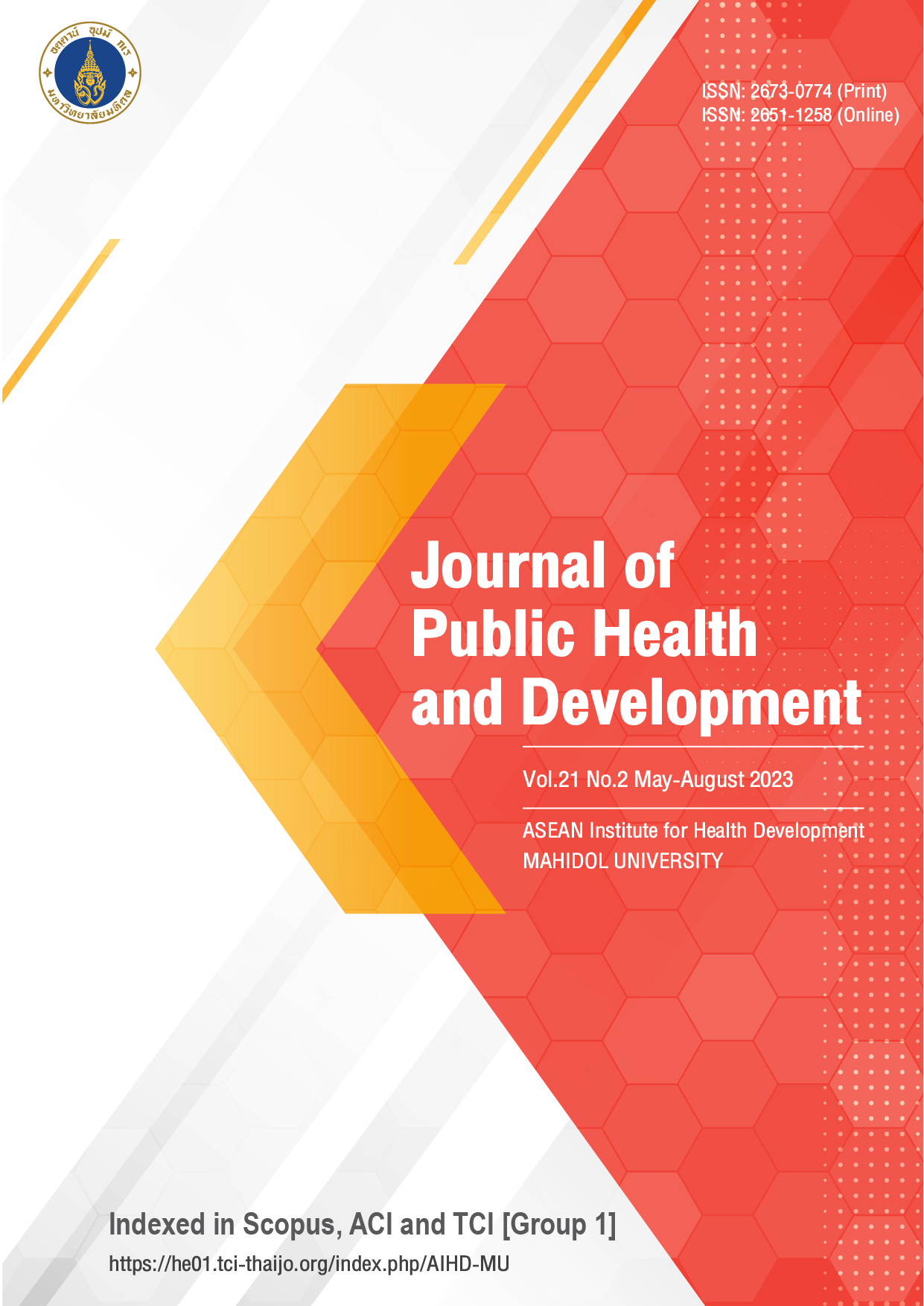Investigating the relationship between spiritual health, social factors and hypochondriasis among students at Shiraz University of Medical Sciences in Iran 10.55131/jphd/2023/210214
Main Article Content
Abstract
Spiritual health represents the last dimension introduced to the overall notion of health and could even be regarded as the most critical dimension. This study investigates spiritual health and social factors associated with it among students at Shiraz University of Medical Sciences (SUMS). The study was cross-sectional research in which the respondents were 400 enrolled students of different disciplines at SUMS selected through random multistage sampling. Electronic questionnaires were used to collect data. Due to COVID-19 restrictions when the study was conducted in 2021, the classes were held online, and the whole process lasted about two months. The data collected were analyzed in SPSS 19 based on such statistical procedures as mean, standard deviation, independent t-test, and one-way ANOVA. The results revealed that, the students’ spiritual health was generally above average, and based on the respondents’ views, the most important dimensions of spiritual health were “behavior”, “orientation”, and “insight”, respectively. The findings also showed a significant difference in the participants’ spiritual health about their marital status, place of residence, and respective school (P<0.05); Being married, living in rural regions, studying nursing, and having completed fewer semesters could contribute to increased spiritual health. The more semesters the students completed, the less spiritual health they experienced (r=-0.134; P<0.001). The reason for this is that increasing the levels of spiritual health would depend on an individual’s ability to change his/her intellectual insights and emotional orientations. However, these two factors may decline as students begin their academic studies. The level of hypochondriasis was low, and this variable variable was not significantly associated with spiritual health (P>0.05). In response, policymakers must find solutions to this problem by formulating plans that could ideally enhance students’ levels of spiritual health.
Article Details

This work is licensed under a Creative Commons Attribution-NonCommercial-NoDerivatives 4.0 International License.
References
Hashempour-Sadeghian M, Movahed M, Tabiee M, Fatehi F. Study of the Relationship Between Core Discussion Network and Demographic Factors With the Spiritual Health of Young and Middle-aged Men and Women. Health Spiritual Med Ethics. 2021;8(4):235-42.
Chapman LS. Developing a useful perspective on spiritual health: love, joy, peace and fulfillment. Am J Health Promot. 1987;2(2):12-7.
Hawks SR. Spiritual health: definition and theory. Wellness Perspectives. 1994;10(4):3-10
Azizi F. Encyclopedia of Islamic spiritual health. Tehran: Shahid Beheshti Medical university. 2018.
Jaberi A, Momennasab M, Yektatalab S, Ebadi A, Cheraghi MA. Spiritual Health: A Concept Analysis. J Relig Health. 2019;58(5):1537-60.
Torabi F, Rassouli M, Nourian M, Borumandnia N, Shirinabadi Farahani A, Nikseresht F. The Effect of Spiritual Care on Adolescents Coping With Cancer. Holist Nurs Pract. 2018;32(3):149-59.
Speck P. Spiritual Care in Health Care. Health and Social Care Chaplaincy. 2013;7:21-5. doi: https://doi.org/10.1558/hscc.v7i1.21
Mishra B, Baghel AS, Paliwal D, Chauhan DS. Study of Spiritual Health Determinants in Indian Saints (Sadhus) at Ujjain Kumbh Mela (Simhast) 2016. Journal of Religion and Health. 2020;59(3):1233-57.
Zhang Y, Xue G, Chen Y, An K, Chen L. Factors related to spiritual health in Chinese haemodialysis patients: A multicentre cross-sectional study. Nurs Open. 2020;7(5):1536-43.
Mehdizadeh MS, Chargchian Khorasani E, Abedian Kasgari K. Factors related to spiritual health in Iran: a systematic review. The twelfth conference of new health sciences of the country; Tehran. 2018.
Ashori Jʻ, Safariyan MR, Yousofi NAA. The Relationship of Religious Orientation, Optimism and Spiritual Intelligence with the Spiritual Well-being of Instructors of the Quran. Psychology & Religion. 2014;7(2):125
Salkovskis PM, Rimes KA, Warwick HM, Clark DM. The Health Anxiety Inventory: development and validation of scales for the measurement of health anxiety and hypochondriasis. Psychol Med. 2002;32(5):843-53.
Evans C. Understanding yourself. India: Signet. 1980.
Talaei A, Fayazi Bordbar M. Hypochondrias in Resident Students of Mashhad University of Medical Sciences. JIUMS. 2009;17(1):8-18.
Amiri P, Abbasi M, Gharibzadeh S, Abadi M, Hamzavi Zarghani N, Azizi F. Designation and psychometric assessment of a comprehensive spiritual health questionnaire for Iranian populations. J Medical Ethics. 2014;8:25-55.
Bufford R. The Spiritual Well-Being Scale. Journal of Psychology and Theology. 1991; 19(1):56-70.
Daaleman TP, Frey BB. The Spirituality Index of Well-Being: a new instrument for health-related quality-of-life research. Ann Fam Med. 2004;2(5):499-503. doi: 10.1370/afm.89.
Dasti R, Sitwat A. Development of a multidimensional measure of Islamic spirituality (MMS). Journal of Muslim Mental Health. 2014;8:47-67.
Teckle P, Hannaford P, Sutton M. Is the health of people living in rural areas different from those in cities? Evidence from routine data linked with the Scottish Health Survey. BMC Health Serv Res. 2012;12:43.
Salehi M, Hoseini Dronkolaei S, Alamian Gavzan S, Motevalian S. Relationship between Spiritual Health with Marital Satisfaction. J Babol Univ Med Sci. 2017;19(3):47-52.
Lawrence EM, Rogers RG, Zajacova A, Wadsworth T. Marital Happiness, Marital Status, Health, and Longevity. J Happiness Stud. 2019;20(5):1539-61.
Gallo LC, Troxel WM, Matthews KA, Kuller LH. Marital status and quality in middle-aged women: Associations with levels and trajectories of cardiovascular risk factors. Health Psychol. 2003;22(5):453-63. doi: 10.1037/0278-6133.22.5.453.
Parhizkar H, Riasaty A, Hashempour-Sadeghian M. Youth and Happiness: Studying the Relationship between Socio-Demographic Determinants and Happiness among Students of Shiraz University of Medical Sciences. Culture in the Islamic University. 2020;10(34):85-102.
Leung CH, Pong HK. Cross-sectional study of the relationship between the spiritual wellbeing and psychological health among university Students. PLOS ONE. 2021;16(4):e0249702. doi: 10.1371/journal.pone.0249702.
Najafi K, Khoshab H, Rahimi N, Jahanara A. Relationship between spiritual health with stress, anxiety and depression in patients with chronic diseases. International Journal of Africa Nursing Sciences. 2022;17:100463






